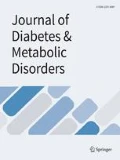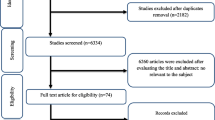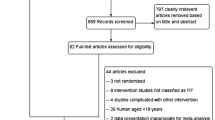Abstract
The aim of meta-analysis was to assess the effects of propolis on markers of oxidative stress, lipid profiles, inflammation and glycemic control, liver enzymes, and weight control. The heterogeneity between the included studies was indicated using the Cochrane’s Q test and I-square (I2) statistic. 14 trials were included in this meta-analysis. Our meta-analysis indicated a significant reduction in fating glucose (WMD: -17.00; 95% CI: −30.88, −3.11), HbA1C (WMD: -0.42; 95% CI: −0.75, −0.10), and insulin (WMD: -1.75; 95% CI: −3.24, −0.26) and a marginally significant reduction in insulin resistance (WMD: -0.60; 95% CI: −1.20, 0.00) following propolis supplementation in 10, 8, 6, and 5 studies, respectively. Pooling 5 effect sizes, a significant reduction was seen in ALT (WMD: -5.63; 95% CI: −10.59, −0.67) and aspartate aminotransferase (AST) (WMD: -3.09; 95% CI: −5.15, −1.03) following propolis. A significant beneficial effect was observed for CRP (WMD: -1.11; 95% CI: −1.92, −0.29), TNF-α (WMD: -6.71; 95% CI: −9.44, −3.98) and interleukin-6 (IL-6) (WMD: -17.99; 95% CI: −35.56, −0.42) concentrations after propolis supplementation. This study demonstrated the beneficial effects of propolis on FPG, HbA1c, insulin, CRP, TNF-α and liver enzymes levels.




Similar content being viewed by others
Data availability
Not applicable.
Abbreviations
- LDL:
-
Low Density Lipoprotein
- AST:
-
Aspartate Aminotransferase
- FPG:
-
Fasting Plasma Glucose
- BMI:
-
Body Mass Index
- HbA1C:
-
Hemoglobin A1C
- IR:
-
Insulin Resistance
- TG:
-
Triglyceride
- TC:
-
Total Cholesterol
- ALT:
-
Alanine Aminotransferase
- HDL:
-
High Density Lipoprotein
- IL-6:
-
Interleukin-6
- CRP:
-
C-reactive protein
- TAC:
-
Total Antioxidant Capacity
- MDA:
-
Malondialdehyde
- TNF-α:
-
Tumor Necrosis Factor-α
References
Toreti VC, Sato HH, Pastore GM, Park YK (2013) Recent progress of propolis for its biological and chemical compositions and its botanical origin. Evidence-based complementary and alternative medicine 2013.
Mizrahi A, Lensky Y (2013) Bee products: properties, applications, and apitherapy. Springer Science & Business Media,
Hausen B, Wollenweber E, Senff H, Post B. Propolis allergy.(II). The sensitizing properties of 1, 1-dimethylallyl caffeic acid ester. Contact Dermatitis. 1987;17(3):171–7.
Kuropatnicki AK, Szliszka E, Krol W. Historical aspects of propolis research in modern times. Evidence-based complementary and alternative medicine : eCAM. 2013;2013:964149–11. https://doi.org/10.1155/2013/964149.
Bueno-Silva B, Alencar SM, Koo H, Ikegaki M, Silva GV, Napimoga MH, et al. Anti-inflammatory and antimicrobial evaluation of neovestitol and vestitol isolated from Brazilian red propolis. J Agric Food Chem. 2013;61(19):4546–50.
Martin LFT, Rocha EM, Garcia SB, Paula JS. Topical Brazilian propolis improves corneal wound healing and inflammation in rats following alkali burns. BMC Complement Altern Med. 2013;13(1):337.
Asemi Z, Akbari M, Lankarani KB, Tabrizi R, Ghayour-Mobarhan M, Ferns G, et al. The effects of curcumin on weight loss among patients with metabolic syndrome and related disorders: a systematic review and meta-analysis of randomized controlled trials. Front Pharmacol. 2019;10:649.
Verma MK, Pandey RK, Khanna R, Agarwal J. The antimicrobial effectiveness of 25% propolis extract in root canal irrigation of primary teeth. Journal of Indian Society of Pedodontics and Preventive Dentistry. 2014;32(2):120.
Campos JF, dos Santos UP, Macorini LFB, de Melo AMMF, Balestieri JBP, Paredes-Gamero EJ, et al. Antimicrobial, antioxidant and cytotoxic activities of propolis from Melipona orbignyi (Hymenoptera, Apidae). Food Chem Toxicol. 2014;65:374–80.
Lopes AA, Ferreira TS, Nesi RT, Lanzetti M, Pires KMP, Silva AM, et al. Antioxidant action of propolis on mouse lungs exposed to short-term cigarette smoke. Bioorg Med Chem. 2013;21(24):7570–7.
Fuliang H, Hepburn H, Xuan H, Chen M, Daya S, Radloff S. Effects of propolis on blood glucose, blood lipid and free radicals in rats with diabetes mellitus. Pharmacol Res. 2005;51(2):147–52.
Shukla S, Bhadauria M, Jadon A. Evaluation of hepatoprotective potential of propolis extract in carbon tetrachloride induced liver injury in rats. Indian J Biochem Biophys. 2005;42(5):321–5.
Babatunde IR, Abdulbasit A, Oladayo MI, Olasile OI, Olamide FR, Gbolahan BW. Hepatoprotective and pancreatoprotective properties of the ethanolic extract of Nigerian propolis. Journal of intercultural ethnopharmacology. 2015;4(2):102–8.
Omene C, Kalac M, Wu J, Marchi E, Frenkel K, O’Connor OA. Propolis and its active component, caffeic acid phenethyl ester (CAPE), modulate breast cancer therapeutic targets via an epigenetically mediated mechanism of action. Journal of cancer science & therapy. 2013;5(10):334–42.
Nakajima Y, Shimazawa M, Mishima S, Hara H. Water extract of propolis and its main constituents, caffeoylquinic acid derivatives, exert neuroprotective effects via antioxidant actions. Life Sci. 2007;80(4):370–7.
Fan Y, Ma L, Zhang W, Wang J, Chen Y, Gao Y, et al. The design of propolis flavone microemulsion and its effect on enhancing the immunity and antioxidant activity in mice. Int J Biol Macromol. 2014;65:200–7.
Orsatti C, Missima F, Pagliarone A, Bachiega TF, Búfalo M, Araújo J Jr, et al. Propolis immunomodulatory action in vivo on toll-like receptors 2 and 4 expression and on pro-inflammatory cytokines production in mice. Phytother Res. 2010;24(8):1141–6.
Maruyama H, Sumitou Y, Sakamoto T, Araki Y, Hara H. Antihypertensive effects of flavonoids isolated from brazilian green propolis in spontaneously hypertensive rats. Biol Pharm Bull. 2009;32(7):1244–50.
Mishima S, Yoshida C, Akino S, Sakamoto T. Antihypertensive effects of Brazilian propolis: identification of caffeoylquinic acids as constituents involved in the hypotension in spontaneously hypertensive rats. Biol Pharm Bull. 2005;28(10):1909–14.
Karimian J, Hadi A, Pourmasoumi M, Najafgholizadeh A, Ghavami A. The efficacy of propolis on markers of glycemic control in adults with type 2 diabetes mellitus: a systematic review and meta-analysis. Phytotherapy research : PTR. 2019;33(6):1616–26. https://doi.org/10.1002/ptr.6356.
Silva-Carvalho R, Baltazar F, Almeida-Aguiar C. Propolis: a complex natural product with a plethora of biological activities that can be explored for drug development. Evidence-based complementary and alternative medicine : eCAM. 2015;2015:206439–29. https://doi.org/10.1155/2015/206439.
Turner RM, Davey J, Clarke MJ, Thompson SG, Higgins JP. Predicting the extent of heterogeneity in meta-analysis, using empirical data from the Cochrane database of systematic reviews. Int J Epidemiol. 2012;41(3):818–27. https://doi.org/10.1093/ije/dys041.
Sterne JA, Egger M. Regression methods to detect publication and other bias in meta-analysis. Publication bias in meta-analysis: Prevention, assessment and adjustments. 2005:99–110.
Salehi-Sahlabadi A, Chhabra M, Rahmani J, Momeni A, Karam G, Nattagh-Eshtivani E, Nouri M, Clark C, Salehi P, Hekmatdoost A (2020) The effect of propolis on anthropometric indices and lipid profile: a systematic review and meta-analysis of randomized controlled trials. Journal of Diabetes & Metabolic Disorders:1–9.
Mujica V, Orrego R, Pérez J, Romero P, Ovalle P, Zúñiga-Hernández J, Arredondo M, Leiva E (2017) The role of propolis in oxidative stress and lipid metabolism: a randomized controlled trial. Evidence-Based Complementary and Alternative Medicine 2017.
Zakerkish M, Jenabi M, Zaeemzadeh N, Hemmati AA, Neisi N. The effect of Iranian propolis on glucose metabolism, lipid profile, insulin resistance, renal function and inflammatory biomarkers in patients with type 2 diabetes mellitus: a randomized double-blind clinical trial. Sci Rep. 2019;9(1):1–11.
Afsharpour F, Hashemipour S, Khadem-Haghighian H, Koushan Y. Effects of Iranian propolis on glycemic status, inflammatory factors, and liver enzyme levels in type 2 diabetic patients: a randomized, double-blind, placebo-controlled, clinical trial. Journal of Nutritional Sciences and Dietetics. 2017:9–14.
Gholaminejad F, Javadi M, Karami AA, Alizadeh F, Kavianpour M, Khadem Haghighian H. Propolis supplementation effects on semen parameters, oxidative stress, inflammatory biomarkers and reproductive hormones in infertile men with Asthenozoospermia; a randomized clinical trial. International Journal of Medical Laboratory. 2019;6(1):21–32.
Samadi N, Mozaffari-Khosravi H, Rahmanian M, Askarishahi M. Effects of bee propolis supplementation on glycemic control, lipid profile and insulin resistance indices in patients with type 2 diabetes: a randomized, double-blind clinical trial. Journal of integrative medicine. 2017;15(2):124–34.
Koya-Miyata S, Arai N, Mizote A, Taniguchi Y, Ushio S, Iwaki K, et al. Propolis prevents diet-induced hyperlipidemia and mitigates weight gain in diet-induced obesity in mice. Biol Pharm Bull. 2009;32(12):2022–8.
Zhao L, Pu L, Wei J, Li J, Wu J, Xin Z, et al. Brazilian green Propolis improves antioxidant function in patients with type 2 diabetes mellitus. Int J Environ Res Public Health. 2016;13(5). https://doi.org/10.3390/ijerph13050498.
Gao W, Pu L, Wei J, Yao Z, Wang Y, Shi T, et al. Serum antioxidant parameters are significantly increased in patients with type 2 diabetes mellitus after consumption of Chinese Propolis: a randomized controlled trial based on fasting serum glucose level. Diabetes therapy : research, treatment and education of diabetes and related disorders. 2018;9(1):101–11. https://doi.org/10.1007/s13300-017-0341-9.
Anderson RA. Chromium, glucose intolerance and diabetes. J Am Coll Nutr. 1998;17(6):548–55.
Ueda M, Hayashibara K, Ashida H. Propolis extract promotes translocation of glucose transporter 4 and glucose uptake through both PI3K-and AMPK-dependent pathways in skeletal muscle. Biofactors. 2013;39(4):457–66.
Kang LJ, Lee HB, Bae HJ, Lee SG. Antidiabetic effect of propolis: reduction of expression of glucose-6-phosphatase through inhibition of Y279 and Y216 autophosphorylation of GSK-3α/β in HepG2 cells. Phytother Res. 2010;24(10):1554–61.
Yu Y, Si Y, Song G, Luo T, Wang J, Qin S. Ethanolic extract of propolis promotes reverse cholesterol transport and the expression of ATP-binding cassette transporter A1 and G1 in mice. Lipids. 2011;46(9):805–11.
Iio A, Ohguchi K, Maruyama H, Tazawa S, Araki Y, Ichihara K, et al. Ethanolic extracts of Brazilian red propolis increase ABCA1 expression and promote cholesterol efflux from THP-1 macrophages. Phytomedicine. 2012;19(5):383–8.
Li Y, Chen M, Xuan H, Hu F (2012) Effects of encapsulated propolis on blood glycemic control, lipid metabolism, and insulin resistance in type 2 diabetes mellitus rats. Evid Based Complement Alternat Med
Bahmani F, Tajadadi-Ebrahimi M, Kolahdooz F, Mazouchi M, Hadaegh H, Jamal AS, et al. The consumption of Synbiotic bread containing Lactobacillus sporogenes and inulin affects nitric oxide and malondialdehyde in patients with type 2 diabetes mellitus: randomized, double-blind, placebo-controlled trial. J Am Coll Nutr. 2016;35(6):506–13. https://doi.org/10.1080/07315724.2015.1032443.
Tajadadi-Ebrahimi M, Bahmani F, Shakeri H, Hadaegh H, Hijijafari M, Abedi F, et al. Effects of daily consumption of synbiotic bread on insulin metabolism and serum high-sensitivity C-reactive protein among diabetic patients: a double-blind, randomized, controlled clinical trial. Ann Nutr Metab. 2014;65(1):34–41. https://doi.org/10.1159/000365153.
Shang H, Bhagavathula AS, Aldhaleei WA, Rahmani J, Karam G, Rinaldi G, et al. Effect of propolis supplementation on C-reactive protein levels and other inflammatory factors: a systematic review and meta-analysis of randomized controlled trials. Journal of King Saud University-Science. 2020;32(2):1694–701.
Zhu A, Wu Z, Zhong X, Ni J, Li Y, Meng J, et al. Brazilian green Propolis prevents cognitive decline into mild cognitive impairment in elderly people living at high altitude. Journal of Alzheimer's disease : JAD. 2018;63(2):551–60. https://doi.org/10.3233/jad-170630.
Silveira MAD, Teles F, Berretta AA, Sanches TR, Rodrigues CE, Seguro AC, et al. Effects of Brazilian green propolis on proteinuria and renal function in patients with chronic kidney disease: a randomized, double-blind, placebo-controlled trial. BMC Nephrol. 2019;20(1):140. https://doi.org/10.1186/s12882-019-1337-7.
Mujica V, Orrego R, Perez J, Romero P, Ovalle P, Zuniga-Hernandez J, et al. The role of Propolis in oxidative stress and lipid metabolism: a randomized controlled trial. Evidence-based complementary and alternative medicine : eCAM. 2017;2017:4272940–11. https://doi.org/10.1155/2017/4272940.
Afsharpour F, Javadi M, Hashemipour S, Koushan Y, Haghighian HK. Propolis supplementation improves glycemic and antioxidant status in patients with type 2 diabetes: a randomized, double-blind, placebo-controlled study. Complementary therapies in medicine. 2019;43:283–8. https://doi.org/10.1016/j.ctim.2019.03.001.
Tolba MF, Azab SS, Khalifa AE, Abdel-Rahman SZ, Abdel-Naim AB. Caffeic acid phenethyl ester, a promising component of propolis with a plethora of biological activities: a review on its anti-inflammatory, neuroprotective, hepatoprotective, and cardioprotective effects. IUBMB Life. 2013;65(8):699–709. https://doi.org/10.1002/iub.1189.
Kurek-Górecka A, Rzepecka-Stojko A, Górecki M, Stojko J, Sosada M, Swierczek-Zieba G. Structure and antioxidant activity of polyphenols derived from propolis. Molecules (Basel, Switzerland). 2013;19(1):78–101. https://doi.org/10.3390/molecules19010078.
Khayyal MT, el-Ghazaly MA, el-Khatib AS, Hatem AM, de Vries PJ, el-Shafei S, et al. A clinical pharmacological study of the potential beneficial effects of a propolis food product as an adjuvant in asthmatic patients. Fundam Clin Pharmacol. 2003;17(1):93–102. https://doi.org/10.1046/j.1472-8206.2003.00117.x.
Fukuda T, Fukui M, Tanaka M, Senmaru T, Iwase H, Yamazaki M, et al. Effect of Brazilian green propolis in patients with type 2 diabetes: a double-blind randomized placebo-controlled study. Biomedical reports. 2015;3(3):355–60. https://doi.org/10.3892/br.2015.436.
El-Sharkawy HM, Anees MM, Van Dyke TE. Propolis improves periodontal status and glycemic control in patients with type 2 diabetes mellitus and chronic periodontitis: a randomized clinical trial. J Periodontol. 2016;87(12):1418–26. https://doi.org/10.1902/jop.2016.150694.
Afsharpour F, Hashemipour S, Khadem-Haghighian H, Koushan Y (2017) Effects of Iranian propolis on glucose metabolic changes, inflammatory factors, liver enzymes levels in type 2 diabetic patients: a randomized, double-blind, placebo-controlled, clinical trial. Journal of Nutritional Sciences and Dietetics.
Zakerkish M, Jenabi M, Zaeemzadeh N, Hemmati AA, Neisi N. The effect of Iranian Propolis on glucose metabolism, lipid profile, insulin resistance, renal function and inflammatory biomarkers in patients with type 2 diabetes mellitus: a randomized double-blind clinical trial. Sci Rep. 2019;9(1):7289. https://doi.org/10.1038/s41598-019-43838-8.
Koo HJ, Lee KR, Kim HS, Lee BM. Detoxification effects of aloe polysaccharide and propolis on the urinary excretion of metabolites in smokers. Food and chemical toxicology : an international journal published for the British Industrial Biological Research Association. 2019;130:99–108. https://doi.org/10.1016/j.fct.2019.05.029.
Funding
IR.QUMS.REC.1398.306.
Author information
Authors and Affiliations
Contributions
JH and SMM contributed in design, statistical analysis, conception and drafting of the manuscript. AM, VEA, EA and HM contributed in manuscript drafting and data collection.
Corresponding author
Ethics declarations
Ethics approval and consent to participate
Not applicable.
Competing interests
No.
Additional information
Publisher’s note
Springer Nature remains neutral with regard to jurisdictional claims in published maps and institutional affiliations.
Supplementary Information
ESM 1
(DOCX 16 kb)
Rights and permissions
About this article
Cite this article
Hallajzadeh, J., Milajerdi, A., Amirani, E. et al. Effects of propolis supplementation on glycemic status, lipid profiles, inflammation and oxidative stress, liver enzymes, and body weight: a systematic review and meta-analysis of randomized controlled clinical trials. J Diabetes Metab Disord 20, 831–843 (2021). https://doi.org/10.1007/s40200-020-00696-w
Received:
Accepted:
Published:
Issue Date:
DOI: https://doi.org/10.1007/s40200-020-00696-w




